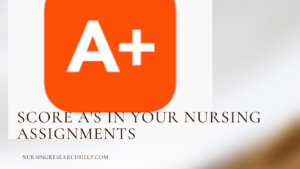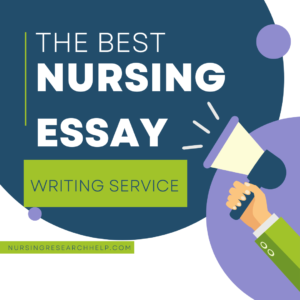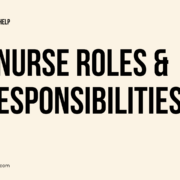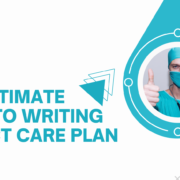The Ultimate Guide: How to Pass the NCLEX Exam
The Ultimate Guide: How to Pass the NCLEX Exam
The National Council Licensure Examination (NCLEX) is a critical step in every nurse’s journey towards professional licensure. This comprehensive exam evaluates the knowledge and skills of aspiring nurses, ensuring they possess the necessary competencies to provide safe and effective patient care. Passing the NCLEX is a significant milestone that requires careful preparation and dedication. In this blog post, we will provide you with a comprehensive guide on how to pass the NCLEX successfully. We will explore essential tips, study strategies, and valuable resources that can help you navigate this rigorous examination and achieve your nursing goals.

I. Understand the NCLEX Exam
Before delving into preparation strategies on how to pass the NCLEX, it is crucial to have a solid understanding of the NCLEX exam. Here are some key points to consider:
1. Exam Format:
The NCLEX is a computerized adaptive test (CAT) that adapts to your individual performance. It consists of multiple-choice questions, multiple-response questions, fill-in-the-blank questions, and other question types.
2. Test Plan:
The National Council of State Boards of Nursing (NCSBN) provides an official NCLEX test plan that outlines the content areas and client needs categories the exam assesses. Review this document to understand the areas of focus and prioritize your study efforts accordingly.
3. Time and Scoring:
The NCLEX is a time-limited exam, and the number of questions you receive may vary. It’s important to manage your time effectively during the exam. The scoring system is based on the difficulty of the questions you answer correctly, rather than the number of questions answered.
II. Develop a Study Plan to Pass the NCLEX
Creating a structured study plan is essential for effective preparation on how to pass the NCLEX. Consider the following steps:
1. Assess Your Knowledge:
Begin by assessing your current level of knowledge and understanding. Take a diagnostic test or utilize self-assessment resources to identify your strengths and weaknesses. This evaluation will help you tailor your study plan to pass the NCLEX by focusing on areas that need improvement.
2. Organize Study Materials:
Gather reliable and comprehensive study materials, such as textbooks, review guides, online courses, and practice question banks. Ensure that these resources align with the NCLEX test plan and provide relevant and up-to-date content.
3. Set Achievable Goals:
Break down your study plan to pass the NCLEX into manageable daily or weekly goals. Set realistic targets that are achievable within your schedule. This approach will help you stay motivated and track your progress effectively.
4. Establish a Routine:
Create a study schedule to pass the NCLEX that suits your learning style and preferences. Allocate dedicated time each day for studying, ensuring consistency and minimizing distractions. Find a quiet and comfortable study space where you can focus effectively.
5. Practice Questions:
Answering practice questions is one of the most effective ways to prepare to pass the NCLEX. Seek out high-quality practice question banks and aim to complete a substantial number of practice questions. This will not only familiarize you with the exam format but also enhance your critical thinking and decision-making skills.
6. Review Content Areas:
Identify the content areas you find most challenging and allocate additional study time to reinforce your understanding and pass the NCLEX. Utilize various learning techniques, such as reading, watching instructional videos, and engaging in interactive activities. Review the fundamentals of nursing, pharmacology, medical-surgical nursing, and other key areas according to the NCLEX test plan.

III. Utilize Effective Study Strategies
To optimize your preparation to pass the NCLEX, employ the following proven study strategies:
1. Active Learning:
Engage actively with the study material rather than passively reading or listening. Take notes, create flashcards, draw diagrams, and explain concepts to yourself or a study partner. Actively participating in the learning process enhances comprehension and retention, enabling you to pass the NCLEX.
2. Concept Mapping:
Use concept maps to visually organize and connect key concepts. This technique aids in comprehending complex relationships and improves information retention. To pass the NCLEX, create concept maps that illustrate the relationships between different nursing concepts, disease processes, and patient care.
3. Group Study:
Collaborate with classmates or join study groups to share knowledge, discuss challenging topics, and clarify doubts. Teaching and explaining concepts to others can enhance your understanding and provide valuable insights to pass the NCLEX. However, ensure that group study sessions remain focused and productive.
4. Mnemonics and Acronyms:
Utilize mnemonic devices and acronyms to memorize complex information, such as medication classifications, assessment techniques, or the steps of specific procedures. These memory aids can be particularly useful for recalling details during the exam, enabling you to pass the NCLEX.
5. Simulated Practice Exams:
To pass the NCLEX, simulate the exam experience by taking timed practice tests. This will help you become familiar with the format, build endurance, and manage your time effectively. Analyze your performance and identify areas for improvement. Practice exams also provide an opportunity to refine your test-taking strategies and alleviate exam anxiety.
6. Prioritize High-Yield Content:
Focus on content areas that are frequently tested on the NCLEX. These may include fundamentals of nursing, pharmacology, medical-surgical nursing, psychiatric nursing, maternal-child health, and prioritization and delegation. Familiarize yourself with the common diseases, medications, nursing interventions, and patient care principles associated with these content areas.
IV. Maintain Physical and Mental Well-being
Taking care of your physical and mental health is crucial during the NCLEX preparation phase. Neglecting self-care can negatively impact your ability to study effectively and perform well on the exam. Consider the following:
1. Sleep and Rest:
Prioritize getting sufficient sleep and rest. Aim for seven to eight hours of quality sleep each night to enhance memory consolidation and cognitive function. Establish a consistent sleep schedule and create a relaxing bedtime routine to promote better sleep.
2. Balanced Nutrition:
Maintain a well-balanced diet to provide your brain and body with the nutrients they need to function optimally. Include a variety of fruits, vegetables, whole grains, lean proteins, and healthy fats in your meals. Stay hydrated and avoid excessive consumption of caffeine or sugary foods, as they can affect your energy levels and concentration.
3. Exercise:
Incorporate regular physical activity into your routine. Exercise improves blood flow, enhances focus, reduces stress, and boosts overall well-being. Engage in activities you enjoy, such as walking, jogging, swimming, yoga, or dancing. Even short bursts of physical activity throughout the day can be beneficial.
4. Stress Management:
Implement stress management techniques to maintain a calm and focused mindset. Practice deep breathing exercises, meditation, mindfulness, or engage in activities that help you relax and unwind. Find healthy coping mechanisms to deal with exam-related stress and anxiety.
5. Support System:
Seek support from friends, family, or fellow nursing students. Surrounding yourself with a supportive network can provide motivation, encouragement, and valuable insights. Share your concerns, discuss challenging topics, and celebrate small achievements together. Consider joining online forums or study groups where you can connect with others preparing for the NCLEX.
Conclusion
Passing the NCLEX is a significant accomplishment that requires dedicated preparation, discipline, and a comprehensive understanding of the exam. By following the strategies and tips outlined in this blog post, you can optimize your study approach, build confidence, and increase your chances of success. Remember to stay focused, maintain a healthy balance between study and self-care, and believe in your abilities. Good luck on your journey to becoming a licensed nurse and making a positive impact in the healthcare field!

Nursing Assignment Help
At Nursing Research Help, we understand the challenges faced by nursing students, especially during the rigorous preparation for the NCLEX. That’s why we offer top-notch assignment help services tailored specifically for nursing students. Our team of experienced professionals, with a strong background in nursing and healthcare, is dedicated to providing you with the support you need to excel in your studies. Whether you need assistance with nursing assignments, case studies, care plans, or any other academic task, our experts are here to guide you.
With our personalized approach, attention to detail, and commitment to delivering high-quality work, we ensure that you receive well-researched, well-written assignments that meet the highest academic standards. Don’t let the stress of assignments hinder your NCLEX preparation. Let us handle your academic workload, allowing you to focus on mastering the essential knowledge and skills required to pass the exam with flying colors. Contact us today to learn more about our assignment help services and take a step closer to achieving your nursing goals.












